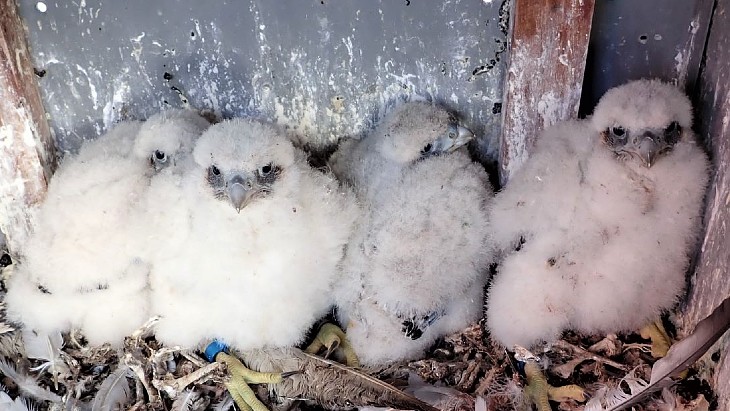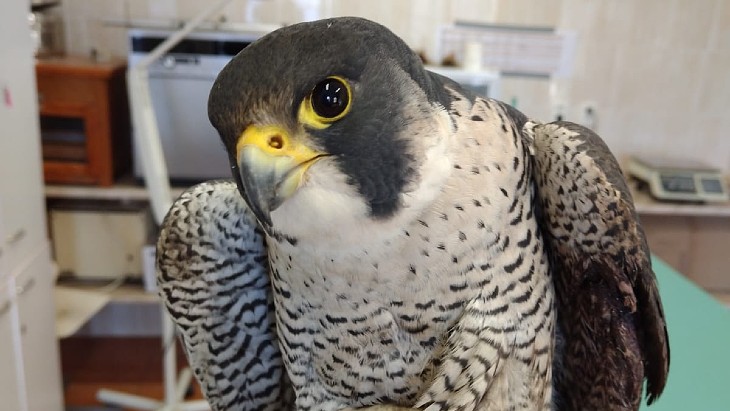The operator of the nuclear power plant, ČEZ, has been involved in a programme with Alka Wildlife to help boost the numbers of the endangered species since 2011, with nesting sites high up on buildings and cooling towers at power stations in the country. During that time at least 163 chicks have embarked on their first flight at one of the power stations. Since 2020, when Dukovany got its first breeding pair, eight chicks are known to have been produced.
This particular three-year-old bird was one of a set of quadruplets, the first to be hatched at the Dukovany plant, on an 125-metre high ventilation chimney.
He was discovered injured in the north of Moravia, which is about 45 kilometres from his birthplace. ČEZ said he was being cared for by vets but is unlikely to be able to fly again, because of the injuries.

The quadruplets, pictured in 2020. According to Alka Wildlife, the public named them Pankrác, Servác, Bonifác and Žofie (Image: ČEZ)
Roman Havlín, director of the Dukovany nuclear power plant, said: "It is sad news, especially when we realise that on the one hand we are trying to save them in the wild, and on the other hand someone is harming them. But for us it means that we will try all the more to create conditions for their safe nesting and the preservation of the entire species for future generations. And I believe that we will be as successful in this as we have been so far."
Peregrine falcons are the world's fastest diving bird, according to Guinness World Records, with one clocking up a diving speed of 242 mph (389 km/h). Their numbers dropped in the middle of the 20th Century in many countries, thought to be linked to the use of DDT as a pesticide on crops, but their numbers have been increasing since the end of DDT use, and with increased conservation measures.
According to Alka Wildlife, peregrine falcons have seen a gradual growth in their number in recent years after previously being critically endangered in the Czech Republic. They say that part of the reason for the recovery has been the work with companies such as ČEZ to create the alternatives to natural nesting sites by installing nest boxes on power plant high chimneys as "normally, falcons will nest in rocky sites at altitudes above 100m".





_87299.jpg)
_52351.jpg)








